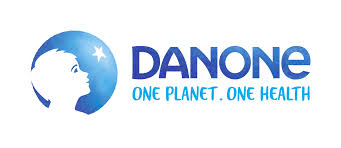

Danone Egypt

Cairo Governorate, Egypt
April 2019
Food products
Manufacturing
Egypt
Danone Egypt is a subsidiary of Danone, a leading global food and beverage company, with headquarters in Cairo with one plant in Obour, a world class dairy farm in Nubariya, the second largest in Egypt, and distribution centers across Egypt. Danone is proud to make a positive contribution to Egypt with great tasting, healthier and top-quality products for infants, children and families; and services which support healthy lifestyles for all Egyptians. Operating with a leading position on essential dairy category (Danone Yogurt, DanUp, Danette, Activia and Dango) and early life nutrition (Bebelac and Aptamil), Danone Egypt’s 1,545 employees are driven by the ambition to nourish a healthier and happier Egypt. At Danone Egypt, they believe in building a socially inclusive approach in the places where they operate and have developed projects that embody this approach: from working with some of the smallest members in their value chain: farmers, milk collectors and micro distributors to providing access to nutrition awareness and education for their consumers.
Overall B Impact Score
Governance 16.6
Governance evaluates a company's overall mission, engagement around its social/environmental impact, ethics, and transparency. This section also evaluates the ability of a company to protect their mission and formally consider stakeholders in decision making through their corporate structure (e.g. benefit corporation) or corporate governing documents.
What is this? A company with an Impact Business Model is intentionally designed to create a specific positive outcome for one of its stakeholders - such as workers, community, environment, or customers.
Workers 29.9
Workers evaluates a company’s contributions to its employees’ financial security, health & safety, wellness, career development, and engagement & satisfaction. In addition, this section recognizes business models designed to benefit workers, such as companies that are at least 40% owned by non-executive employees and those that have workforce development programs to support individuals with barriers to employment.
Community 39.8
Community evaluates a company’s engagement with and impact on the communities in which it operates, hires from, and sources from. Topics include diversity, equity & inclusion, economic impact, civic engagement, charitable giving, and supply chain management. In addition, this section recognizes business models that are designed to address specific community-oriented problems, such as poverty alleviation through fair trade sourcing or distribution via microenterprises, producer cooperative models, locally focused economic development, and formal charitable giving commitments.
What is this? A company with an Impact Business Model is intentionally designed to create a specific positive outcome for one of its stakeholders - such as workers, community, environment, or customers.
Environment 19.7
Environment evaluates a company’s overall environmental management practices as well as its impact on the air, climate, water, land, and biodiversity. This includes the direct impact of a company’s operations and, when applicable its supply chain and distribution channels. This section also recognizes companies with environmentally innovative production processes and those that sell products or services that have a positive environmental impact. Some examples might include products and services that create renewable energy, reduce consumption or waste, conserve land or wildlife, provide less toxic alternatives to the market, or educate people about environmental problems.
Customers 3.3
Customers evaluates a company’s stewardship of its customers through the quality of its products and services, ethical marketing, data privacy and security, and feedback channels. In addition, this section recognizes products or services that are designed to address a particular social problem for or through its customers, such as health or educational products, arts & media products, serving underserved customers/clients, and services that improve the social impact of other businesses or organizations.